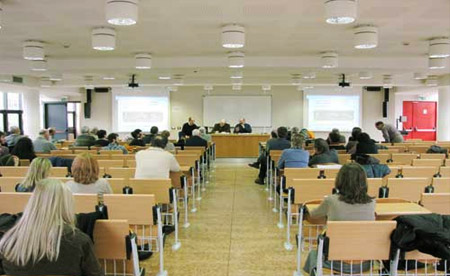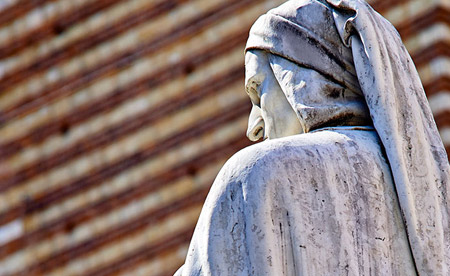- Autori:
-
Rodighiero, Andrea
- Titolo:
-
Poseidone e Atena nel prologo delle 'Troiane' di Euripide
- Anno:
-
2015
- Tipologia prodotto:
-
Contributo in volume (Capitolo o Saggio)
- Tipologia ANVUR:
- Contributo in volume (Capitolo o Saggio)
- Lingua:
-
Italiano
- Formato:
-
A Stampa
- Titolo libro:
-
En el umbral de la obra. Personajes y situaciones en el prólogo
- Casa editrice:
- Levante Editori
- ISBN:
- 9788879496551
- Intervallo pagine:
-
237-261
- Parole chiave:
-
Tragedia greca, Euripide, Troiane, prologo
- Breve descrizione dei contenuti:
- Poseidon and Athena are the two divine figures who appear in the Trojan Women’s prologue; they could be considered as ‘secondary characters’ not only because they will disappear without coming back, but also because both their presence and their action seem disconnected from what follows in the drama. Critics have sometimes considered their dialogue as needless, and some of them have doubts about its authenticity. The prologue is actually a sort of ‘narratological parenthesis’, but undoubtedly the prophecy on the destiny of the Greek fleet must have been more significant – as a necessary chapter – within the trilogy’s plot. This prologue functions as a threshold leading the audience to the current situation of the Trojan women; one more sign of unity can be detected in the constant reference to the total disaster which surrounds this place and the entire myth (the fall of Troy, the extinction of a civilization, along with the foretold shipwreck on the Aegean sea). Also the tyche-leitmotiv and the Poseidon’s reproach against Athena are to be read as concealed connections to the rest of the tragedy; another linking element is offered by the motif of ‘waiting’: Athena, as well as Cassandra and the Greeks, waits for the wind (v. 93-94, vv. 455-460, vv. 882-883). The tragedy is then passed through by a compositional symmetry and by some linguistic hints (not always adequately stressed by critics). The announced storm is going to happen only at the end of the drama (or rather: after it), and with the fleet’s departure (back to the prologue’s theme) the audience can make out a formal unity. This paper ends with a reference to Sartre’s "Les Troyennes", where the Euripidean prologue is curiously postponed as if it were the epilogue of the drama.
- Id prodotto:
-
89194
- Handle IRIS:
-
11562/930091
- ultima modifica:
-
1 novembre 2022
- Citazione bibliografica:
-
Rodighiero, Andrea,
Poseidone e Atena nel prologo delle 'Troiane' di Euripide
En el umbral de la obra. Personajes y situaciones en el prólogo
,
Levante Editori
,
2015
,
pp. 237-261
Consulta la scheda completa presente nel
repository istituzionale della Ricerca di Ateneo 








